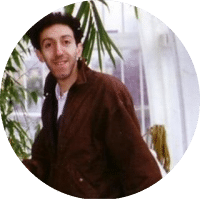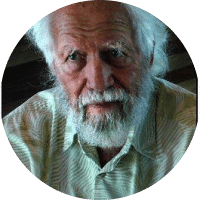No products in the cart.

Psilocybin will be legalized in a court case
Contents
FunGuyz spokesperson, Sam Akila, intends to use his court case to legalize psilocybin. He says the psilocybin laws are contrary to freedom of thought under section 2(b) of the Charter of Rights and Freedoms (the “Charter”) and must be struck down. Freedom of thought is very similar to freedom of consciousness or cognitive liberty. Here in Canada, the Charter calls it freedom of thought.
Psilocybin is a freedom of thought tool. Psilocybin is to freedom of thought what the printing press was to freedom of expression, what a church is to freedom of religion or what a passport is to freedom of mobility. It is a tool that allows one to experience that freedom in a more fulsome manner. Psilocybin enhances thought in many ways.
Psilocybin in magic mushrooms promotes focus, mindfulness, openness, connectivity, creativity, cognitive flexibility, interpersonal closeness, gratitude, well-being, peace, calm, compassion, empathy, spiritual experiences, life meaning/ purpose, and ego dissolution.
Importance of Thought
These are great types of thought, but all thought, good or bad, is profoundly important and should not be fettered. Thought drives all aspects of our lives. Thought is critical for our democratic, religious, philosophical, spiritual, social, romantic, creative, professional, and personal decisions. Our actions are driven by thought before, during and after. We are with our thoughts when we are with others and when we are alone. Thought shapes our quality of life.
Freedom of thought is not just important in and of itself. Thought is necessary for the proper exercise of almost all other rights including freedom of religion, freedom of expression, freedom of belief, freedom of opinion, and the right to vote. Some rights would cease to exist without freedom of thought. Freedom of thought is the most important of all rights.
The Supreme Court of Canada has never had a true freedom of thought case. But in R. v. Zundel, [1992] S.C.J. No. 70, a freedom of expression case, the Supreme Court implied that freedom of thought was the most important constitutional principle.
Everyone has the following fundamental freedoms: freedom of thought, belief, opinion and expression, including freedom of the press and other media of communication.
– the Charter
38 …[I]f there is any principle of the Constitution that more imperatively calls for attachment than any other it is the principle of free thought — not free thought for those who agree with us but freedom for the thought that we hate. I think that we should adhere to that principle with regard to admission into, as well as to life within this country.
In 1948 the United Nations General Assembly formally protected freedom of thought by way of the Universal Declaration of Human Rights (the Declaration). Article 18 declared that “everyone has the right to freedom of thought, conscience and religion.”
Article 9(1) of the European Convention on Human Rights states, among other things, “Everyone has the right to freedom of thought, conscience and religion; this right includes freedom to change his religion or belief and freedom, either alone or in community with others and in public or private, to manifest his religion or belief, in worship, teaching, practice and observance.”
The 1789 French Declaration of the Rights of Man described freedom of thought as one of the most sacred of rights.
Without freedom of thought there can be no such thing as wisdom.
-Benjamin Franklin
Carefully guard your thoughts because they are the source of true life.
-Proverbs 4:23

Man must be able to think freely and he must be able to express his thoughts freely! He who is against this is not only fascist and primitive but at the same time is a very great coward also! Only the brave and the honourable men are never afraid of freedom of thought and freedom of expression of ideas! Just like the cockroaches do not like the light, evil minds also do not like the freedom of thoughts!
-Author Mehmet Murat Idan

From the skin inward is my jurisdiction, is it not? I choose what may or may not cross that border. Here I am the Customs Agent. I am the Coast Guard. I am the sole legal and spiritual Government of this territory, and only the laws I choose to enact within myself are applicable! Now, were I to be guilty of invading or sabotaging that same territory in others, then the external law of the Nation has every right—indeed, the responsibility—to prosecute me in the agreed-upon manner. But what I think? Where I focus my awareness? What biochemical reactions I choose to cause within the territorial boundaries of my own skin are not subject to the beliefs, morals, laws or preferences of any other person! I am a sovereign state, and I feel that my borders are far more sacred than the politically drawn boundaries of any country.
-Chemist and pharmacologist Alexander Shulgin and Author Ann Shulgin
This case will legalize psilocybin in Canada, but it will not stop there. This will be the first step in the legal unravelling of all the psychedelic prohibitions.
I am counsel for Mr. Sam Akila. If you have used psilocybin for freedom of thought purposes, then I would like to hear from you. We want you to be a witness. Help us change the law in court. Please contact Joanna Shaw at Lewin and Sagara LLP at (416) 499-7945 ext. 102 or email at [email protected].
-Paul Lewin
Psilocybin Legalization FAQs
-
What is Psilocybin, and Why is It Illegal?
Psilocybin is a naturally occurring psychoactive substance found in certain strains of mushrooms. These mushrooms are often called ‘magic mushrooms’ or ‘psilocybin mushrooms’. Psilocybin is classified as a Schedule I drug. It has no accepted medical use and has a high potential for abuse (but has been used for therapeutic and medicinal purposes for centuries). According to this classification, the possession, sale and use of psilocybin are forbidden in most countries.
-
What Are the Key Arguments for Legalizing Psilocybin in Court?
Proponents of psilocybin legalisation use several legal arguments to support it:
- Medical necessity (for centuries, people have used psilocybin therapeutically to treat psychological illnesses, as supported by clinical trials);
- Religious freedom (some religious believers argue that a psilocybin ban violates their freedom to follow their religion);
- Public health (legalising psilocybin in a controlled environment would eliminate black market risks and ensure safe use under medical supervision);
- Freedom of thought (psilocybin is also used to enhance the brain's cognitive function and creativity, which is essentially a reflection of thoughts).
-
How Close is Psilocybin to Full Legalization?
The world is getting closer to full legalisation of psilocybin, considering the number of countries that have already legalised the use of psilocybin. However, full legalisation at the federal level in Canada and other countries takes time and will depend on further legal and medical research proving its safety and efficacy.